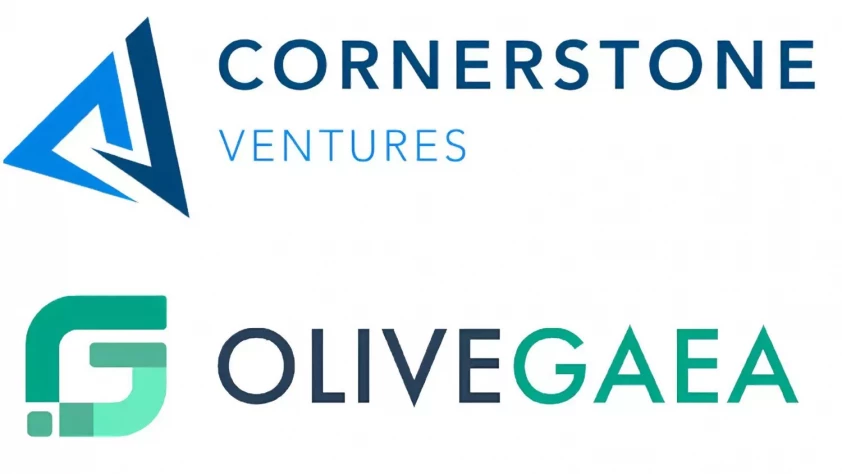On 26th September 2023, Olive Gaea and Climate Connect Digital co-organized the “Pre-COP28 Forum” in Dubai with the mission of helping UAE players understand and navigate the complexities of achieving Net Zero carbon emissions in the Gulf region. The event brought together experts and industry leaders to discuss climate action and sustainability. This blog aims to capture the essence of the Forum’s dialogues, presenting a narrative that unfolds the discussions and ideas exchanged during the event.
Pre-COP28 Forum: Achieving Net Zero in the Gulf
The Pre-COP28 Forum in Dubai featured a lineup of insightful panel discussions that addressed pivotal aspects of climate action and sustainability. The first panel, “COP 28 and its relevance for UAE businesses,” explored how local enterprises can align with global climate objectives. The second panel, “Decarbonisation – The Path to Net Zero,” delved into strategies for reducing carbon emissions across industries. Finally, the third panel, “Carbon Offset Guide: Making Informed Choices,” provided a comprehensive guide to carbon offsetting practices. Together, these panels contributed to a comprehensive exploration of key issues in the pursuit of a sustainable future.
| PANEL 1 | PANEL 2 | PANEL 3 |
| Adrienne Doolan
CEO, Green Touches & Board Member UN Global Compact Local Network UAE |
Guido Mercati
CEO and Founder of PROTe-IN |
Guido Mercati
CEO and Founder of PROTe-IN |
| Hani Abdel Raziq,
Associate Sustainability Director, AESG |
Vivek Tripathi,
Co-Founder & CEO Olive Gaea |
Nadia Boumeziout
Head of Sustainability & Information Governance – Middle East, Zurich Insurance |
| John Haining
Senior Director – Energy, Alvarez & Marsal |
Dr. Jagannathan P.
Senior General Manager – Sustainability & Climate Action, Sobha Realty |
Dr Mustafa Khan
Head Carbon and Climate Strategy, Climate Connect Digital |
| Dr Mustafa Khan
Head Carbon and Climate Strategy, Climate Connect Digital |
Hitesh Bhuraria
Co-Founder & CEO, Sangti |
Racha Moukayed
Managing Director – Howden Guardian |
| Richard A Paton
Head of EY-Parthenon MENA, Advisor to Minister of Climate Change and Environment (MOCCAE) |
Georges AL Hajj
Senior Manager Net Zero, ENBD |
Rashid Kizhakkayil
Quality and Environment Controller, Sharjah Airport |
Key Highlights
Climate Action can no longer wait
The Forum began with a focus on the urgent need for climate action. Jessica Scopacasa, co-founder and CMO Olive Gaea, acknowledged that global efforts are falling short of meeting Paris Agreement targets, emphasising the urgency due to unprecedented biodiversity loss and planetary boundary breaches. Quoting UN Secretary-General Antonio Guterres, she warned that inaction has “opened gates to hell,” citing instances of drought-led famine, historic floods, and devastating wildfires worldwide. Highlighting the evolving business case for climate action, Scopacasa mentioned consumer expectations, enhanced brand reputation, reduced risk, and lower capital costs are finally pushing more and more companies to embrace sustainability. She stressed the importance of a measurable, science-based approach, positioning decarbonization as a crucial step for any organisation in today’s day and age. The keynote set the tone for the forum, urging participants to collectively embark on a transformative journey and take immediate action toward achieving net-zero goals.
Decarbonization Strategies Require Multifaceted Approach
The discussions delved into the complexities of decarbonization across different industries. Experts shared insights on the necessity of developing actionable strategies tailored to each sector’s specific needs and capabilities. The emphasis was on moving beyond dialogue to implement tangible, effective measures in reducing carbon footprints.
The Carbon Offsetting Needs Quality and Transparency
A significant portion of the discussion centred on the challenges of carbon offsetting. The conversation revolved around ensuring the quality of carbon credits and the transparency of offset projects. The forum highlighted the balance between reducing emissions internally (insetting) and engaging in external carbon offsetting as a holistic approach to carbon management. Experts elaborated on the need for businesses to initially focus on insetting – reducing emissions within their operations and supply chains. Once these measures are maximized, offsetting – investing in external projects to compensate for remaining emissions – becomes crucial.
The forum also highlighted the importance of quality and transparency in carbon markets. With the growing demand for carbon credits, ensuring the integrity and effectiveness of these credits becomes paramount. Participants discussed the need for standardized processes and certifications to validate the credibility of carbon offset projects.
Technological Innovations are crucial to boost Climate Action
The role of technology as a driving force in climate initiatives was a key topic of discussion. Innovations like AI and blockchain in verifying carbon offsets, as well as advanced platforms for carbon credit procurement, were discussed as crucial tools in making climate action more accessible and effective. The discussions underscored technology’s potential to revolutionize sustainability efforts.
A significant focus was placed on the implementation of comprehensive Carbon Management and Accounting Platforms (CMAPs). Olive Gaea’s “ZERO,” a trailblazing platform in the region, stands out as a key solution enabling companies to accurately measure, mitigate, offset, and report their carbon footprint. This adherence to global standards through ZERO not only facilitates effective carbon management but also positions it as a leader in driving environmental accountability.
The Role of Government Policies in Climate Action
In the realm of combating climate change, the pivotal role of government policies emerged as a prominent theme. Recognizing the urgency for concrete climate action, discussions delved into the necessity of government intervention in formulating frameworks, regulations, and policies. This governmental support is not just a facilitator but a crucial element in enabling businesses to contribute effectively to the climate change agenda.
Experts and thought leaders in the field highlighted the critical need for robust and forward-thinking policies. These policies, they argued, must not only guide but actively support sustainable practices across diverse sectors. Furthermore, governance was identified as a key player in ensuring adherence to environmental regulations and in paving the way towards achieving broader climate goals.
Corporate Sustainability must move beyond Compliance
Transitioning from policy to corporate responsibility, the conversation naturally shifted towards how companies can transcend beyond mere compliance with environmental laws. There is an evolving understanding that sustainability needs to be a fundamental part of a company’s ethos, not just a checkmark against regulatory requirements.
The discussions brought to light various innovative approaches that companies are adopting to embed sustainable practices into their core business strategies. These practices are not seen merely as tools for environmental conservation but are increasingly recognized for their role in driving long-term profitability and enhancing stakeholder engagement. In this context, sustainability is viewed not just as an obligation but as an opportunity for businesses to lead, innovate, and create a positive impact on society and the environment.
Green Financing and Investments Needed
A significant portion of the forum was dedicated to the exploration of green financing and investments. This segment brought to the forefront the growing trend of financial resources being directed towards environmentally sustainable projects. The discussions emphasized the crucial role that banks, investors, and other financial entities play in this dynamic. Their involvement and support are seen as vital in propelling the journey towards broader climate objectives.
There was a particular focus on the need for financial systems and instruments that not only support but also align with sustainability goals. Experts shed light on the potential of various financial mechanisms such as green bonds, impact investing, and the implementation of Environmental, Social, and Governance (ESG) criteria. These instruments are not just seen as funding sources but as catalysts for meaningful environmental change.
Beyond cost: the business case for Sustainable Practices
Another key highlight of this segment was the economic rationale behind adopting sustainable practices. The discussions weren’t limited to the environmental impact but extended to the tangible economic benefits these practices offer. Speakers shared insights on how green technologies and sustainable operations are not just environmentally responsible choices but also smart business strategies.
These sustainable approaches are increasingly recognized for their ability to drive long-term cost savings, elevate brand reputation, and provide competitive advantages in the market. The conversation illustrated that sustainability is not only a moral imperative but also a sound economic investment, offering a win-win scenario for both the environment and businesses.
The Future of Climate Action: Harnessing Technological Innovations for Environmental Sustainability
The concluding sessions of the forum put a spotlight on the transformative role of technology in the fight against climate change. These discussions delved into various innovative solutions, such as advanced carbon capture techniques and the development of renewable energy sources. The speakers elaborated on how these technologies are not merely tools for environmental conservation but also gateways to new avenues in economic development and growth.
The emphasis was on understanding the dual impact of these technologies — their potential to significantly reduce environmental harm while simultaneously opening up new markets and opportunities for economic advancement. This segment of the forum provided a glimpse into a future where technology and sustainability are intricately linked, offering a roadmap for progress that is both environmentally sound and economically viable.
Cross-Sectoral Alliances for a Cohesive Climate Strategy
A recurring and compelling theme in the forum’s concluding discussions was the imperative for collaboration across various sectors. The event uniquely brought together a diverse array of experts and thought leaders from government bodies, financial institutions, technological innovators, and environmental advocacy groups. There was a unanimous understanding of the need for a collaborative, multi-disciplinary approach to address the complex challenges posed by climate change effectively.
The conversations underscored the idea that the battle against climate change requires more than isolated efforts. It demands a concerted, collaborative approach where different sectors and industries share insights, innovations, and strategies. This synergy is vital for creating comprehensive solutions that can tackle environmental challenges on multiple fronts. The importance of shared goals and joint initiatives was stressed, emphasizing that the path to sustainable development is a journey that requires collective wisdom and concerted efforts.

